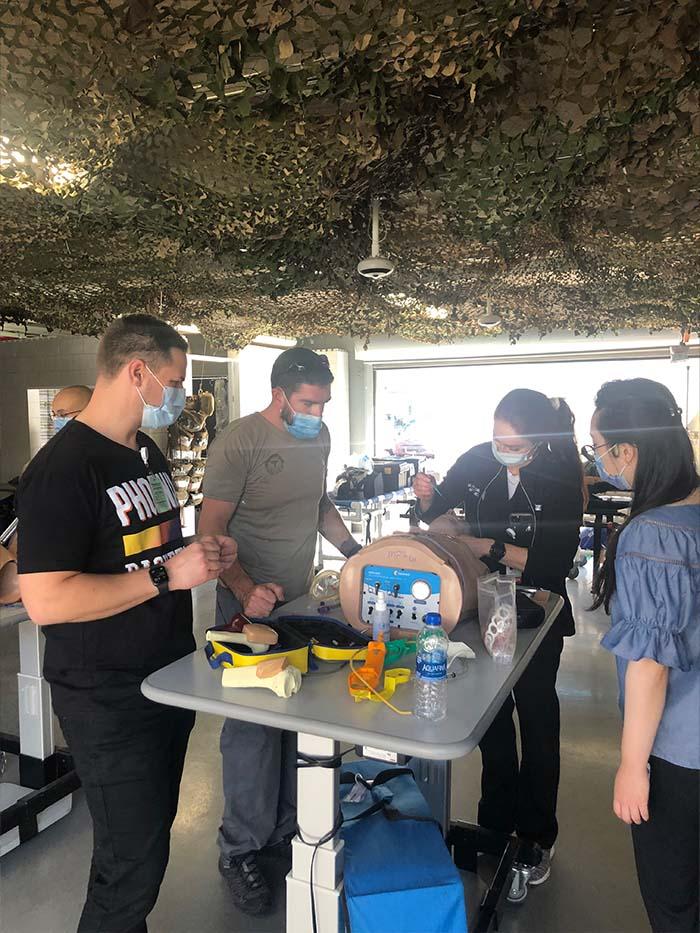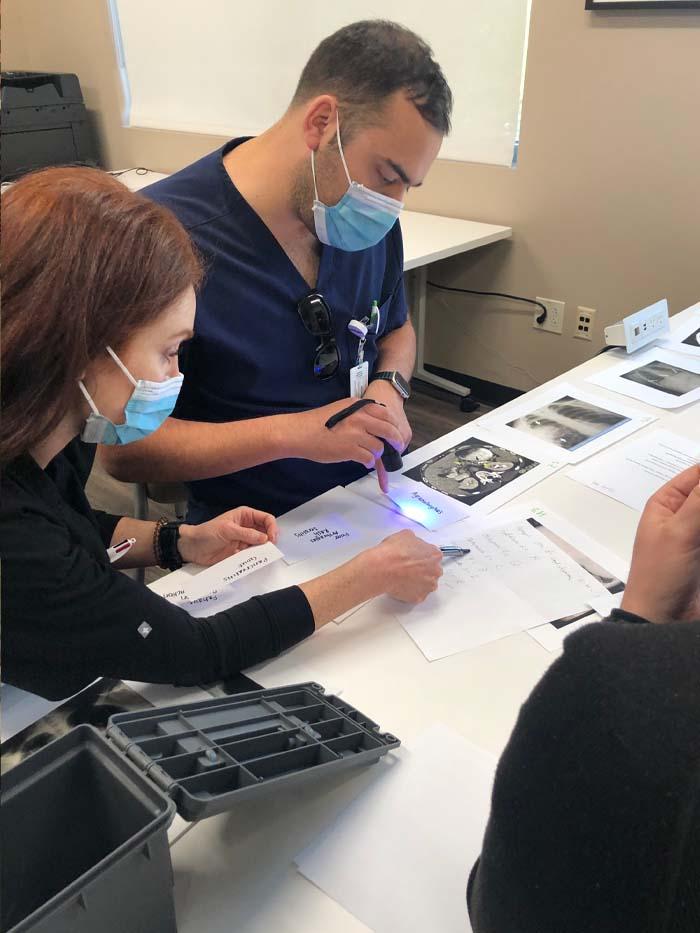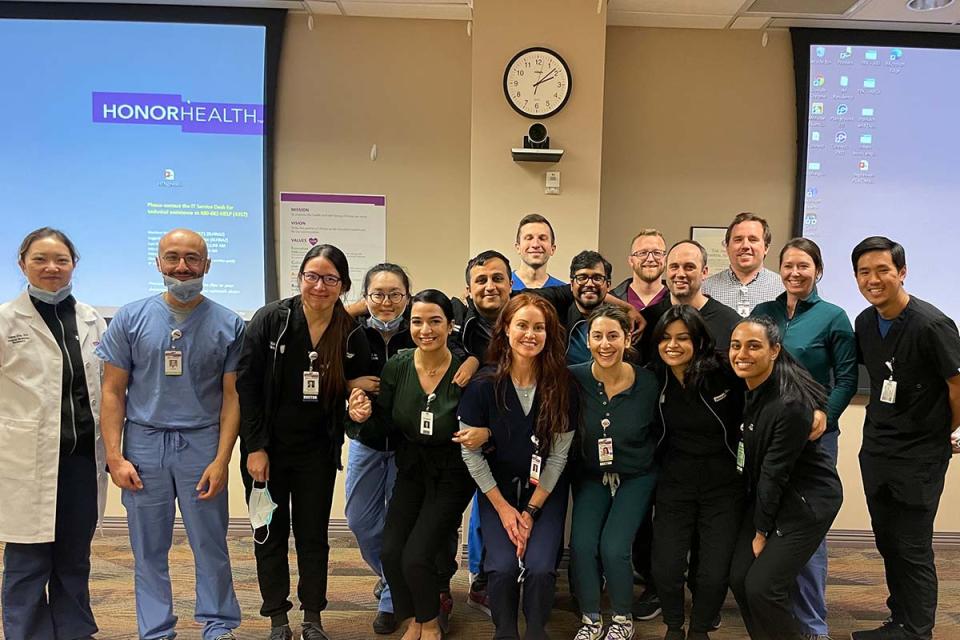Didactics and board preparation
Resident education is our top priority. We not only provide a wide array of didactic activities, but also protect residents’ time such that they are not being pulled for patient care duties while attending educational sessions. Our program director, Dr. Sall, has a master’s degree in education and integrating adult learning theory principles into our curriculum has been a key focus. Below is a snapshot of some of the educational activities we offer:
Board preparation
All residents are given the funds to purchase MKSAP, the ACP board review curriculum. We focus not only on the topic at hand, but also test-taking strategies. We have an internal board review curriculum for senior residents with longitudinal subject-specific examinations, followed by review sessions that focus not only on the topic, but also key test-taking strategies. Residents are also given funds to attend a reputable board review course leading up to their exam. Our board pass rate is 94%.
Inpatient morning report
Residents on the inpatient teams get to work with 2-3 faculty members each day to do a variety of activities including dissecting an interesting case, reviewing board-style questions related to topics discussed during the block, learning ultrasound and practicing rapids/codes via simulation. A medical librarian is involved to help incorporate the latest evidence into the discussions and medical decision-making.
Academic half-day
Academic half-day (AHD), is a weekly 3-hour session that covers core IM topics. Residents are excused from clinical duties during this time. AHD starts with lectures/cases from subspecialty faculty and follows with a rotating base of activities such as journal club, small group problem-based learning cases, great debates, resident-led presentations, quality improvement instruction, board review, simulation, wellness activities, gaming/competitions and a dedicated diversity, equity and inclusion curriculum.
Morbidity, mortality and improvement (M, M and I) conference
In an effort to continuously improve, we dissect cases as a group where a suboptimal outcome occurred. We do this in a judgement-free way that allows identification of knowledge gaps or systems issues that led to the outcome. Often issues are identified that drive resident QI projects to help improve future care.
Journal club
With faculty, residents review relevant journal articles and discuss the methods and impact of the study as a group. This both exposes residents to key evidence from which to base their medical decisions and teaches how to critically appraise the literature.
The great debates
This is a resident-led interactive session in which two residents choose a controversial topic in medicine. Each resident formally debates the merits of each side of the topic. Some examples of prior debates include:
- Direct-to-consumer genetic testing
- The merits/concerns with physician-assisted suicide
- Steroids in community-acquired pneumonia
- Surgery vs. antibiotics for acute uncomplicated appendicitis
- Albumin vs. crystalloid for fluid resuscitation
- Vaping vs. cigarette smoking in patients not ready to quit
- Testosterone supplementation in age-related hypogonadism
Ambulatory curriculum
The ambulatory curriculum is comprised of several components including quality improvement projects, learning modules (John’s Hopkins PEAC modules), JAMA Evidence-Based rational clinical exam didactics and weekly ambulatory morning report.
Knowledge games
Ever walk out of a lecture thinking you were super engaged and then try to recall something about that lecture weeks later and you can’t do it? This happens all the time – if we don’t do anything active with material presented to us, we will not retain it long term. To combat this, residents are pushed questions about material presented in conference throughout the week. To make it fun, at the end of each month the resident with the most points for correct answers wins a prize.
Point-of-care ultrasound (POCUS)
We have handheld Butterfly Ultrasound probes for use in the inpatient and outpatient setting. We teach POCUS during morning report with access to a high-fidelity POCUS task-trainer that contains both normal and pathologic images.
Simulation
We hold bi-monthly simulations to review rapid response and code scenarios at our simulation center here at TPK. We also conduct standardized patient simulations periodically to review communication skills and engage with the military partnership simulation center at our Osborn location for additional high-fidelity simulations.
Medical grand rounds
The monthly Grand Round lectures bring local and national faculty to HonorHealth to provide education to a multidisciplinary audience on topics relevant to the IM boards and patient care.
Medical escape room
Faculty and chief residents design elaborate events where teams of residents solve puzzles using their medical knowledge to “escape the room”.


